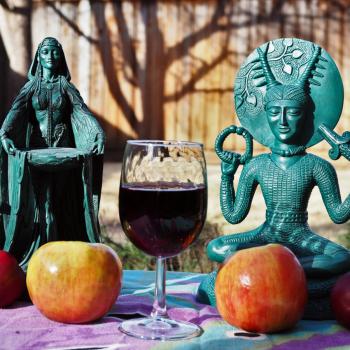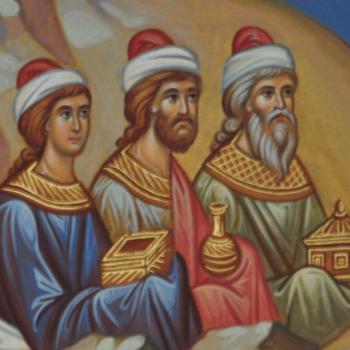Most who know something about Latter-day Saints know that we have scripture besides the Bible, namely the Book of Mormon. Sometimes people know that we have a book of scripture called the Book of Mormon but don't know that we also accept the Bible as scripture. But we do.
The Book of Mormon is a translation by the prophet Joseph Smith of an ancient set of plates delivered to him by an angel, seen by eleven witnesses and handled by some of them, translated by the power of God, and returned to the angel after the translation was over.
It is the edited history (edited by Mormon) of a small group of refugees from Jerusalem in the 6th century B.C.E. who landed someplace in the Americas (perhaps in Central America or on the coast of Peru or Chile), split into two groups, and probably intermarried with existing peoples. One of the two groups continued to practice a form of the Israelite religion that they brought with them from Jerusalem. Christ visited and taught the gospel to the descendants of the original settlers after his resurrection. The identifiable descendants were finally wiped out in warfare about 400 C.E.
Even people who know that Mormons accept both the Bible and the Book of Mormon as scripture often don't know that we have two additional scriptural books, the Doctrine and Covenants and the Pearl of Great Price. And we hold open the possibility of other scripture being revealed.
As do other Christians, as well as Jews and Muslims, we believe that scripture is the word of God. Unlike many, however, we do not believe that the scriptural texts we have are infallible. In fact, perhaps even the original texts were not infallible.
Self-referentially the title page of the Book of Mormon explicitly says, "if there are faults they are the mistakes of men; wherefore, condemn not the things of God, that ye may be found spotless at the judgment-seat of Christ." It is possible that there are faults in the Book of Mormon (and, by implication, other scripture), but that doesn't disqualify it as a thing of God. We don't believe in the inerrancy of scripture.
According to the Doctrine and Covenants, the general definer for scripture is that it is produced by the Holy Ghost:
. . . whatsoever they shall speak when moved upon by the Holy Ghost shall be scripture, shall be the will of the Lord, shall be the mind of the Lord, shall be the word of the Lord, shall be the voice of the Lord, and the power of God unto salvation. (D&C 68:4)
That is an important claim: God speaks to us through the Holy Spirit, who speaks to us through other human beings. Part of our responsibility is to be able to distinguish between what is taught through the movement of the Holy Ghost and what is not.
Obviously, however, not everything ever said by the Spirit can be collected, published, and used as authoritative scripture. So we distinguish between the broader sense of scripture in that quotation and the scriptures we recognize as authoritative and binding: the Bible, the Book of Mormon, the Doctrine and Covenants, and the Pearl of Great Price. We sometimes refer to those books collectively as "the standard works," in other words the works that set a standard for our practices and beliefs.
One can easily ask, "Why those books and not some other collection?" or "If the LDS canon can be added to, what would qualify something to be an addition?" We recognize that God may inspire many things and not all inspired things are scripture. So the question of how something comes to be included in the canon is a good one.
The Protestant philosopher, Paul Ricoeur identifies five characteristics of Christian scripture that help answer that question (in "Manifestation and Proclamation and "Philosophy and Religious Language," both in Figuring the Sacred):
- Scripture has a religious dimension.
- Broadly, it tends toward the ethical rather than the aesthetic, teaching us how to live more than offering openings for mystical experience.
- Scriptures have an historical vector, even if that history is not understood as moderns understand it.
- They make specific truth claims about the world.
- They are revelatory: "above and beyond emotions, disposition, belief, or nonbelief, is the proposition of a world that in the biblical language is called a new world, a new covenant, the kingdom of God, a new birth" ("Philosophy & Religious Language" 44).





